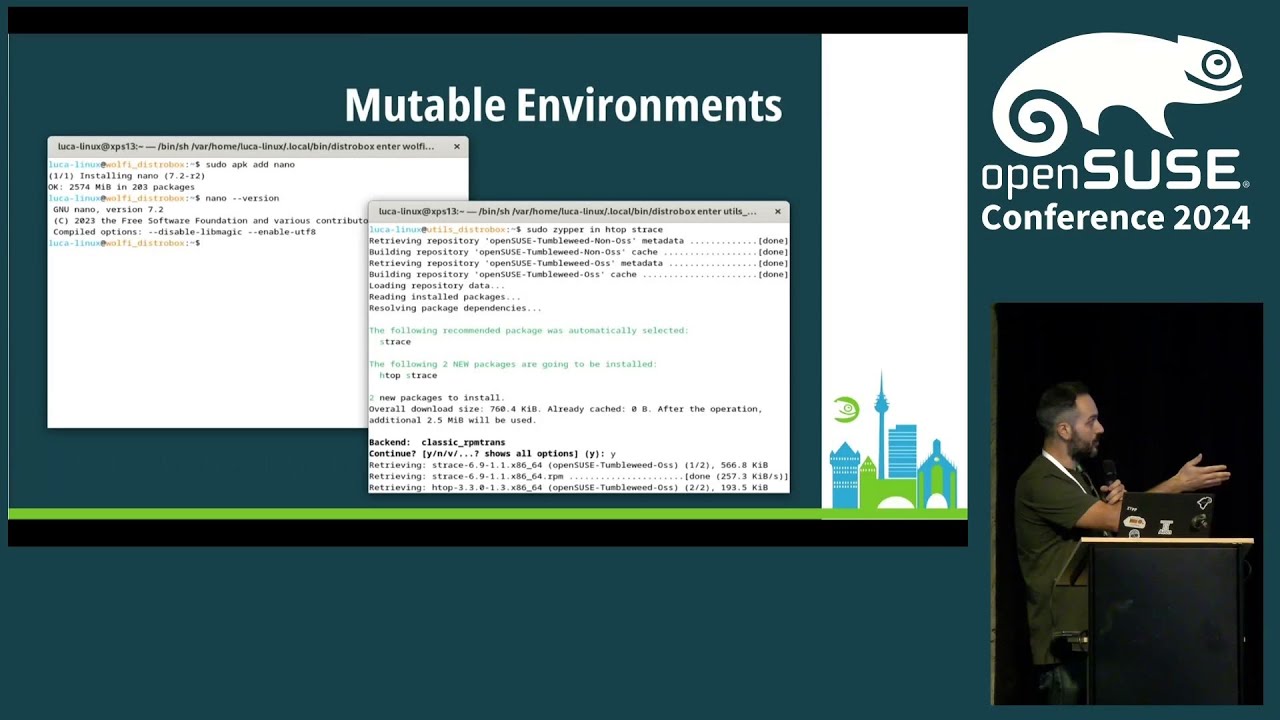This reminds me of Rob Pikes paper from the year 2000.
http://doc.cat-v.org/bell_labs/utah2000/utah2000.html
- 4 Posts
- 93 Comments

 5·2 months ago
5·2 months agoIf we want to do something radically different, there’s always gopher and gemini browsers.
It’s more that changes can be made with coordination across the OS, with a shared vision and goal. Linux distros are primarily integration projects, putting together the components from other peoples projects. BSDs are in control of the base OS project as one coherent project.
I see what you mean now. I thought you meant as in upstream/downstream.
Tumbleweed is not a derivative of Leap.

 91·2 months ago
91·2 months ago“The discussion continued for quite a while without making much headway.”
I think Debian is interesting, being such a large project of collaboration. I want this democratic, volunteer, non-corporate backed, free project to show that 10000 eyes make bugs shallow. I wish this model produced new ways of doing things, bringing people together in the spirit of creativity and playful productivity.
I’ve used Debian in different ways for around 15 years now, and I really want it to succeed.
Having said that, there is a “but…” looming in the back of my mind. But… it’s difficult to ignore that other distributions are the ones pushing Linux forward. The innovation from Fedora and the distributions still called OpenSuse explore new areas which become the standards.
This is not criticism of Debian, I just wonder if we humans are capable of collaborating freely at that level without some top-down force directing work forward, or if we are bound to being one step behind, always trying to catch up to what others have already done?

 101·3 months ago
101·3 months agoAre we actually converting people or is the desktop platform just less popular for other OSs in favor of phones etc?
Debian + Flatpaks has been very reliable to me.

 8·4 months ago
8·4 months agoThe last time my grub was broken was around 2012 when I ran Arch. After that I have rarely thought about grub at all.

 4·4 months ago
4·4 months agoWhat about the proposal to just drop the name openSUSE with no replacement? And let each distro just be called Tumbleweed, Leap, Aeon, etc.
Fedora/Redhat is a good example. It could be argued that the Linux distro scene was different 23 years ago, making it harder to be seen today.
The thing I’m pondering is what the openSUSE community actually is. Does it exist as a group, or is it separate projects, each doing their own thing… for who? What is the overlap between people in the various distros, overlap in technology used in packaging and QA etc? Is it meaningful to talk about openSUSE as a distinct community separate from SUSE?
When I hear openSUSE, I think of german engineering and resources from SUSE, with a history of innovating great infrastructure.
With a new name, distanced from the SUSE part, I’ll probably feel more like if this is yet another random derivative created by a small group who might soon lose interest.
They get an urge to install Linux on an old ThinkPad while wearing colourful long socks?
In recent turn of events, openSUSE Aeon will probably just be Aeon, and the name openSUSE will disappear everywhere.
What started as openSUSE Micro Desktop is now openSUSE Aeon. It’s still RC2, and RC3 will probably be easier to do a clean install since it will add full disk encryption, but if you want to check it out now it’s reliable and works well.
Yes, I think it’s basically the same. With Aeon you get a lot of it automated and already set up, which is good if you want the kind of system that Aeon is. It’s opinionated, so if you want to tinker or want something else I think Tumbleweed is better.
The founder of GNOME, Miguel de Icaza, stopped using Linux in favor of macOS in 2014 iirc. That makes me guess that the macOS design was at least acceptable to him. Maybe the visions were similar enough.
plain TeX is a joy to use, but you must really understand boxes and glue etc on a deep level. LaTeX makes that easier, but at the cost of extreme complexity internally (compare the output routines for example.)



The picture called “Upstream and Prism programs” has the old logotypes for Yahoo, Hotmail, etc, and the old garamond version of the google logo, they must have been doing this for a while.